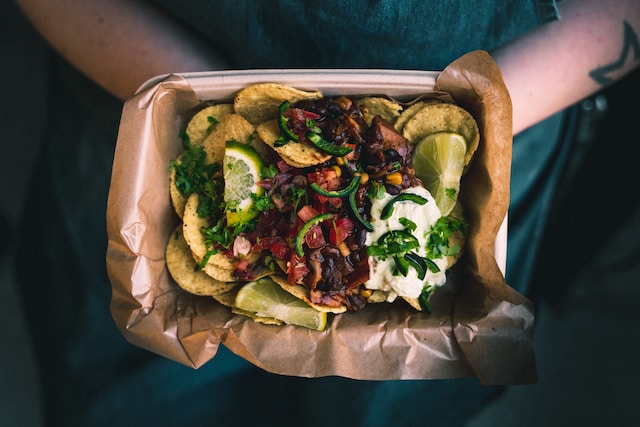With its diversified culinary scene and thriving food culture, London has developed a booming street food sector.
This article will give you insightful information and resolve your most pressing queries if you love to cook and want to start a street food business in the bustling capital city.
Let’s explore the world of selling street food in London, from getting the required licenses to choosing the ideal site and drawing people.
Contents
- 1 What Are The Legal Requirements For Selling Street Food In London?
- 2 How Can I Find The Perfect Location For Selling Street Food In London?
- 3 What Are The Popular Street Food Trends In London?
- 4 How Can I Make My Street Food Stand Out From The Competition?
- 5 How Can I Market And Promote My Street Food Business?
- 6 How Can I Manage The Financial Aspect Of My Street Food Business?
What Are The Legal Requirements For Selling Street Food In London?
- Registering your food business:
Before you can start selling food on the street, you must register your business with the local government or the Food Standards Agency (FSA).
- Food safety and sanitation:
Respect health and safety rules, which include handling, storing, and preparing food properly. Obtain a certificate from the Food Hygiene Rating Scheme (FHRS).
- Street trading license:
Apply for a street trade license from the neighborhood council or Transport for London (TfL) if you intend to conduct business on public property.
How Can I Find The Perfect Location For Selling Street Food In London?
- Research popular street food areas:
Check neighborhoods recognized for their street food scenes, such as Camden, Shoreditch, Borough Market, and Covent Garden, when conducting research in well-known street food areas.
Assess the foot traffic and presence of competitors by visiting these locations.
- Collaborate with local markets and events:
Partnering with well-known businesses and taking part in culinary festivals can increase exposure and draw in more customers.
- Consider private land:
Look for opportunities to set up your food stand on a privately held property or outside of already-existing businesses with the property owner’s consent.
What Are The Popular Street Food Trends In London?
- Global cuisine:
Londoners have a diverse palate, so think of serving a range of flavors and cuisines from around the world.
- Health-conscious options:
Alternatives that are more health-conscious than street food are in greater demand. Include gluten-free, vegan, and vegetarian alternatives on your menu.
- Dishes that are distinctive and photogenic:
Presentation is crucial for drawing customers. Make food that is aesthetically pleasing, shareable on social media, and photogenic.
How Can I Make My Street Food Stand Out From The Competition?
- Unique menu:
Create a menu that stands apart from the offerings of other street food sellers. Experiment with fusion cuisine or give traditional recipes fresh spins.
- Engage with customers:
Build a devoted customer base by providing exceptional customer service and by creating a welcoming environment. Provide individualized advice and solicit comments.
- Quality ingredients:
Choosing fresh, regional ingredients will assure delicious food of the highest caliber.
How Can I Market And Promote My Street Food Business?
Street food marketing and promotion in London can help you become more visible, draw clients, and develop a devoted following. Here are some tactics to take into account:
- Identify your target market:
Based on their tastes, demographics, and location, identify your potential clients. This will enable you to successfully personalize your marketing initiatives.
- Build a powerful brand:
Create a distinctive brand identity, complete with a name, logo, and color palette.

Building awareness and trust will be facilitated by consistent branding throughout all marketing materials.
- Online presence:
Create a professional website to promote your street food enterprise online. Include details about your menu, location, and contact details.
To increase your website’s visibility on search engines, optimize it for local search terms.
Create social media accounts on sites like Facebook, Twitter, and Instagram to interact with potential consumers and publish mouthwatering culinary images.
- Engage influencers:
Work with well-known food bloggers, regional influencers, and London-based social media stars. In exchange for frank evaluations or shout-outs on their networks, give them freebies or discounts.
This might expand your audience and help you establish credibility.
- Take part in food festivals and events:
There are many food festivals and events held in London every year.
To draw in foodies and generate talk about your company, apply to participate and present your street cuisine at these events.
Make sure to advertise your involvement on social media and in local directories ahead of time.
- Use regional directories and listings:
Add your company to food-related websites, review sites, and online directories like TripAdvisor, Yelp, and OpenTable.
Positive reviews from delighted clients should be encouraged as they can have a significant impact on prospective clients.
- Offer promotions and loyalty programs:
Offer discounts for first-time customers, lunch specials, and loyalty programs that reward frequent visitors to your establishment in order to draw in new clients and promote repeat business.

Through your website, social media, and physical signs, advertise these incentives.
- Collaborate with complementary businesses:
Form collaborations with neighboring cafes, breweries, or other businesses that support your brand. Collaborate with complementary businesses. cross-promote one another’s companies by organizing events or giving each other discounts.
This might broaden your clientele and introduce potential customers to your street food enterprise.
How Can I Manage The Financial Aspect Of My Street Food Business?
In London, managing the financial side of a street food operation needs rigorous organization and planning.
Here are some recommendations to assist you in handling your money well:
- Budgeting:
Make a thorough budget that details all of your predicted spending and income.

Take into account expenses for things like food supplies, machinery, permits, licenses, transportation, employee compensation (if applicable), marketing, and overhead.
To make sure you stick to your budget, set reasonable financial goals and keep tabs on your spending.
- Separate business and personal finances:
Separate your personal and company finances by opening a different bank account for each.
This will make it simpler for you to maintain your personal and corporate funds separately and keep tabs on your earnings and outgoings.
Additionally, it makes tax reporting easier and guarantees that you have a transparent financial picture of your company.

